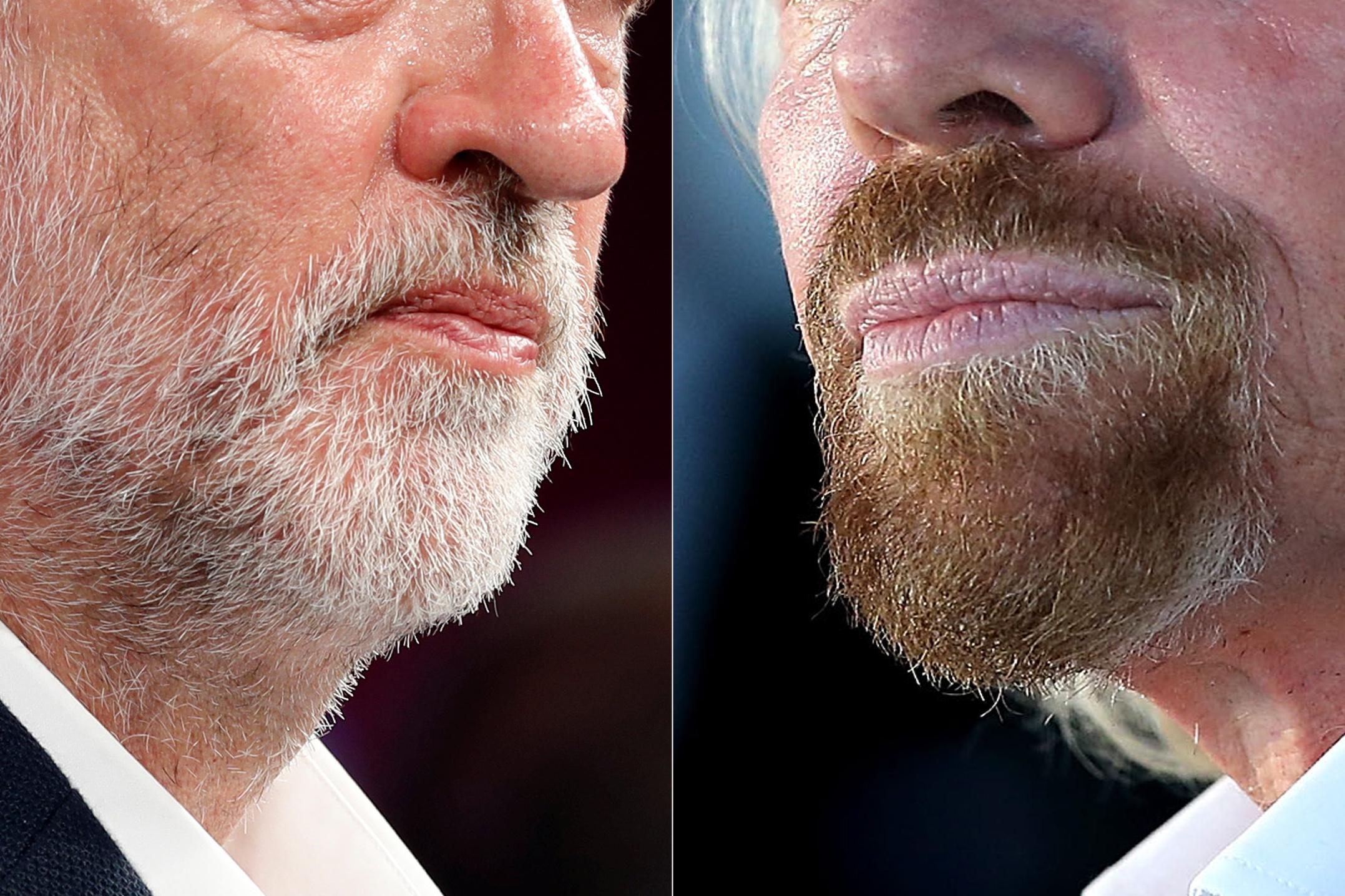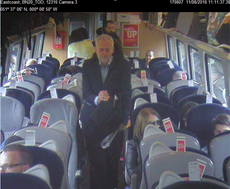Jeremy Corbyn's attempt to mimic Lenin doesn't simply mean we should renationalise the railways
One day we may learn the truth about that trip to Gateshead. Until then, here are my conclusions


Perhaps one day an esteemed public servant in the mould of Sir John Chilcot will publish a multi-volume account of Jeremy Corbyn’s Virgin rail trip to Gateshead, complete with witness statements garnered from open testimony on oath, all relevant emails and, of course, examining the various stills and CCTV footage that have already been released by interested parties. Let us hope that there will be Justice for Jeremy at the end of it all.
Until then, we can only essay some early conclusions about the events that took place mid-morning on August 11 2016, a day that will live in infamy.
Who should prevail in the Great War of the Beards, that is between the tidy-bearded Sir Richard Branson and the radically-bearded Corbyn. Not since Vladimir Illych Lenin made his famous “sealed train” journey to a revolutionary welcome at Finland Station, Petrograd in 1917 has such a journey provoked such debate. He had a beard, too.
The evidence is patchy. There are still images that do indeed show Corbyn clambering into a seat at some point in the journey. A time for that event has been established; but was he filmed before or after that event? What happened when people got off at York? Did Virgin staff “move people around the train”, as has been claimed? Who was the family that Corbyn’s office say were upgraded to first class? Why they were thus privileged? Was the plight of the Leader of the Opposition the motivation for this unusual act of mercy by the capitalists?
We have seen the original footage, filmed by an associate of Corbyn, which demonstrates that he did indeed squat in the vestibule normally reserved for exhausted squaddies on their way back from leave to their barracks, or tired students. Yes, that does show an over-literal willingness to "get down with the kids", part of Corbyn’s undoubted appeal. But might it not have been possible for him to perhaps perch somewhere?
When were all other options exhausted? Was he wrong to reject the offer of a first class seat from Virgin Trains, the equivalent of a last-minute attempt at compromise in the United Nations? Where was Hans Blix? In the buffet car?
Turning now to Corbyn’s political question, this too is replete with issues as yet unresolved: “The reality is there’s not enough trains, we need more of them, and they’re also incredibly expensive. Isn’t that a good case for public ownership?” All agree that there are not enough trains, yet that was also true in the days of British Rail. Some way into the 1990s, for example, "slam-door” carriages that had been built in the 1950s were still in use by commuters. The trains became more crowded after privatisation, arguably, because the economy started to pick up and because the demand for rail increased markedly under improved management of the services.
In terms of buying new rolling stock, the question is whether the funds to provide new trains should be found from the fares paid by those who use them, or by the wider public, some of whom rarely if ever let the train take the strain. Should those people living in places that don’t even have a rail station subsidise often rich commuters in the south-east of England?
Fares, there is little dispute, are often “incredibly expensive”, but, as Virgin point out, advance tickets can reduce that cost significantly. As for public ownership, older readers may recall with a shudder BR’s answer to McDonalds; the Casey Jones burger. Difficult to believe at this stage in Britain’s culinary renaissance, this was a burger in which the entire “piece” was microwaved to such a heat – burger, cheese and dill pickle included – that it constituted a kind of mini weapon of mass destruction.
Whatever snack was in Corbyn's brown paper bag was certainly more palatable than that product of the corporate state, whether eaten standing, sitting or squatting. But what was it?


Join our commenting forum
Join thought-provoking conversations, follow other Independent readers and see their replies